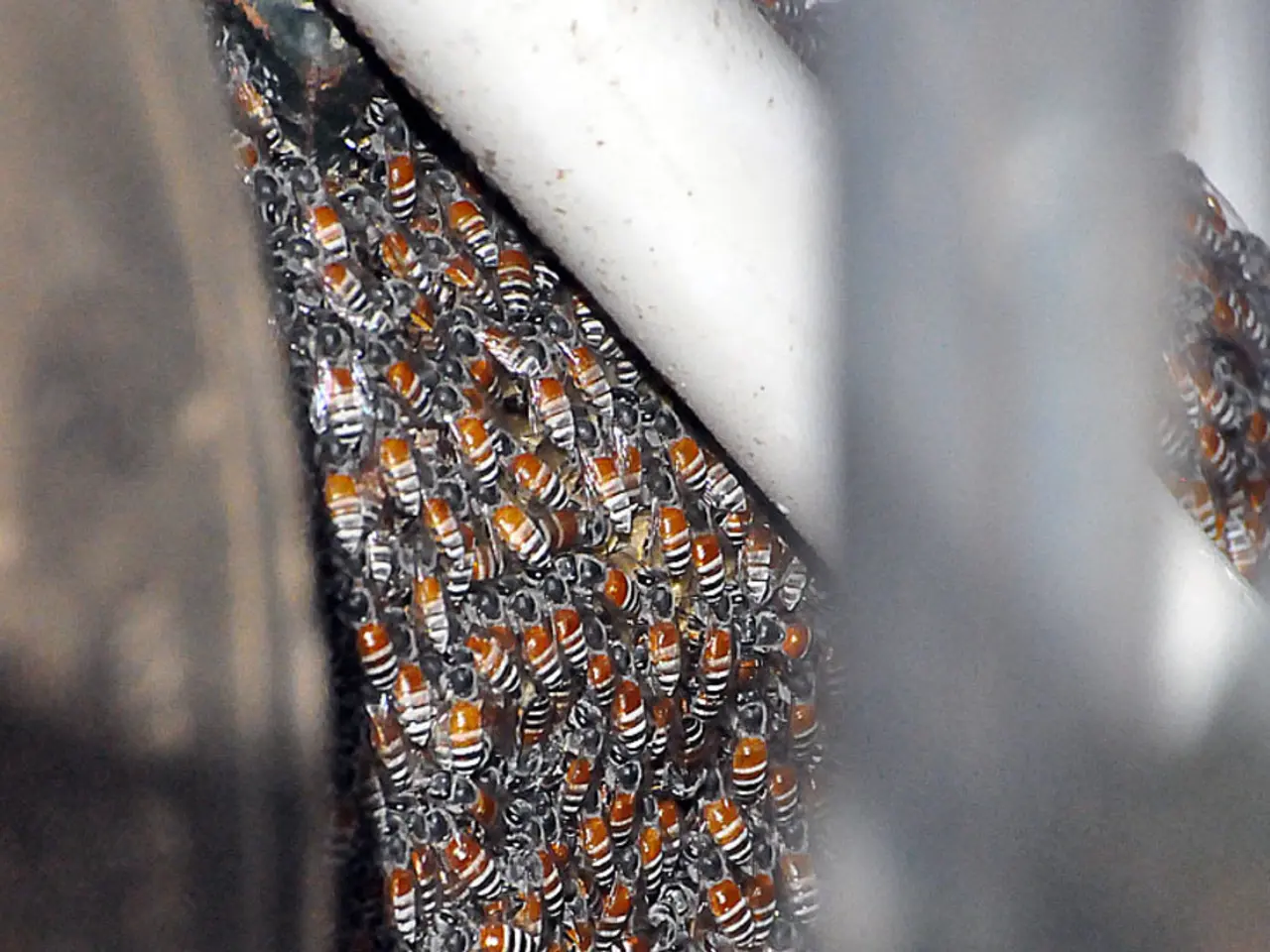Detroit Hives undertakes a dual venture: protecting honeybees and fostering local community engagement.
In the heart of Detroit, a unique project is blossoming. Detroit Hives, a network of bee farms and native plant gardens, is making a significant impact on the city's urban ecosystem. Founded by Timothy Paule and Nicole Lindsey, this nonprofit organisation is dedicated to enhancing food security, pollinator conservation, and revitalising neglected urban spaces.
The core of Detroit Hives' work involves managing honeybee colonies in the city. These bees play a vital role in pollinating urban green spaces and community gardens, boosting local food systems and biodiversity. The organisation's educational programs engage community members and local schools, offering workshops that combine science, entrepreneurship, and art to raise awareness and skills related to pollinators and urban agriculture.
One of the unique aspects of Detroit Hives is their focus on native bee conservation. By creating suitable habitats and native plant gardens, they help maintain populations of efficient pollinators. These native bees are about eight times better at pollinating food crops than honeybees, making their conservation role critical in urban environments where habitat loss threatens pollinator diversity.
Detroit Hives has also repurposed vacant lots in the city, transforming them into pollinator gardens and apiaries. An example of this is the Motor City Garden, a pollinator garden built in an upcycled 1981 Oldsmobile Cutlass. The organisation also operates in the location where rapper Eminem's childhood home once stood, now being transformed into a pollinator habitat.
Education and awareness are key components of Detroit Hives' mission. They offer educational tours and teach schoolchildren about the importance of conserving endangered bees and urban beekeeping. The founders, Timothy Paule and Nicole Lindsey, believe in the importance of educating people about bees and their role in urban ecosystems.
Detroit Hives sells raw honey as a natural sweetener and to help provide food security in the neighbourhoods they serve. The organisation cares for more than 54 honeybee colonies in some 27 locations, ensuring the bees are healthy and pest-free.
Timothy Paule and Nicole Lindsey have ambitious plans for the future. They aim to expand their project to include a large-scale apiary and additional lots with features such as an electrical charging station for cars. They started National Urban Beekeeping Day on July 19, a day dedicated to celebrating the role of bees in urban ecosystems.
Bees, it seems, have found a strong ally in Detroit Hives. From relocating swarms in houses and trees to educating the community about the importance of bees, Detroit Hives is making a difference, one bee at a time. And as for the bees, they seem to have found a city that welcomes them with open arms and sunflower-like yellow wildflowers, black-eyed Susans, easy for them to spot and rest on.
- The fashion-and-beauty scene in Detroit is gradually evolving, with more individuals embracing sustainable, eco-friendly, and bee-inspired designs.
- Just as Detroit Hives is revitalizing urban spaces, local businesses are focusing on food-and-drink establishments that prioritize locally sourced honey as a sweetener.
- For those interested in personal-growth and self-development, workshops in Detroit now offer skills training on urban beekeeping, as well as weather forecasting to better predict sunny days for the bees.
- For those looking for new learning opportunities, Detroit schools are incorporating lessons about pets, including bees, into their curriculums, emphasizing compassion and care for all living creatures.
- Detroit Hives' the Motor City Garden, built from a 1981 Oldsmobile Cutlass, serves as an innovative model for car enthusiasts interested in repurposing and upcycling automobiles.
- On a deeper level, relationships in Detroit are evolving with a heightened appreciation for community involvement and collaboration, much like that of honeybee colonies working together in an apiary.
- As Detroit pursues career-development and progress in sports, the WNBA and NBA teams have expressed interest in partnering with Detroit Hives to create pollinator-friendly stadiums, enhancing the city's green image.
- Education about sports-betting in the city has also been refined to help people make informed decisions about their investments, with a nod to the reality that weather patterns can impact the performance of local basketball teams, such as NCAA-basketball and the Detroit Pistons.
- Sustainable living is gaining traction in Detroit, with residents incorporating weather forecasting methods to plan their gardening activities, ensuring optimal growth for home-and-garden projects like the native plant gardens championed by Detroit Hives.
- The revitalizing effort of Detroit Hives extends to shopping ventures as well, with local retailers featuring genuine honey products and accessories designed to support bee conservation.
- By focusing on urban ecosystems, community development, and education, Detroit Hives has set a strong precedent for cities worldwide, demonstrating that a lifestyle centered around pollinator conservation can lead to a more harmonious and vibrant community.





